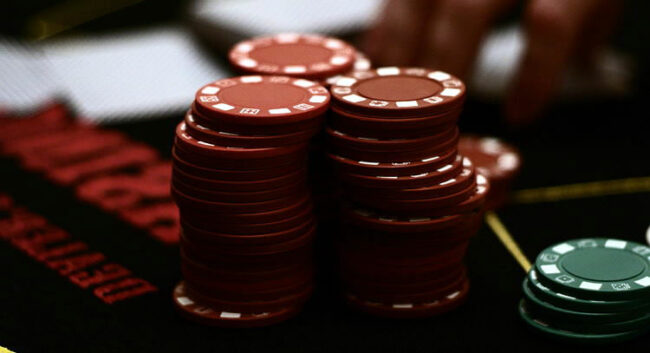Edward Howarth, Lead Writer for DashTickets, compiled research studies that reveal the current state of the Nigerian gambling market. To fully understand Nigerians and what drives them to gamble, one must understand the socioeconomic background of the population of this growing country. It is equally important to apply the results of the polls to the actual Nigerian population.
- Half of the adult population placed a sports bet last year
- Nineteen per cent of all adults are daily gamblers
- Children gamble, too
- Nigeria has the second-largest gambling market in Africa
- Sports betting is by far the most popular
- Most bets are small
- Nigerians place sports bets to survive
- More than 80% of Nigerians placed bets on the 2022 World Cup
- Conclusion
Sports betting is absouletly huge in Nigeria, with almost 70 million people partaking on a weekly basis, which includes teenagers, who often place bets on makeshift kiosks where children also work. Most players see sports betting as means of supplemental income and are participating in the activity to put food on the table.
Howarth argues that, since there’s such a dire need for income, sports betting is the least of the problems and it isn’t causing as much harm as false moralists claim. If there wasn’t sports betting, children and young adults would be forced to make income in illegal ways.
Half of the adult population placed a sports bet last year
According to the results of the TGM Sports Betting Survey that was conducted in October 2022, 51.73% of the adult population was involved in sports betting. This is sometimes wrongly cited as more than half of the entire population of Nigeria, but in fact only adults, 18-64, were polled. This population segment in Nigeria is around 100 million people, which would mean that around 52 million placed a sports bet last year.
Nineteen per cent of all adults are daily gamblers
Extrapolating the results of oft-cited studies about the frequency of betting in Nigeria, we can claim that 19% of all adults in Nigeria, or 19 million people in total, are daily gamblers. We reach this number by looking mostly at the NOIPolls research that claims that 53% of all polled people who said they gambled at least once in their life are daily gamblers.
Take this with a grain of salt, as the question is formulated in a not very good way, since in Nigeria it mostly applies to football betting – and that mostly takes place during the weekends. It wouldn’t be surprising if many polled people were confused by the question. In any case, this proportion of people who regularly bet on sports is unprecedented worldwide.
Children gamble, too
According to a 2018 research by Aguocha et al. that was conducted in secondary schools, 57.2% of school-age children have gambled at least once in their lifetime and 77.6% of these have gambled in the past year. Of these respondents, 58.3% reported they were freely allowed access to gambling facilities. These often include makeshift kiosks for football betting, where children also work.
It must be noted that Nigeria has a huge segment of young population, with almost 25 million people falling in the 14-18 age bracket. This would mean that almost 20 million teenagers in Nigeria had gambled at least once.
Nigeria has the second-largest gambling market in Africa
Trailing only South Africa and competing with Kenya to be the most sports betting obsessed country in Africa, Nigeria has the second-largest gambling market on the continent. At the moment, the Nigerian gambling market is worth $2 billion, while South Africa’s is worth $2.1 billion. But with the growing population in Nigeria, it’s just a matter of time before Nigeria takes over as the largest gambling market in Africa. It might even happen in 2024 or 2025.
Sports betting is by far the most popular
Most Nigerians see casino gambling as risky and uncertain, whereas in sports betting they can make educated guesses and pick their own degree of risk in terms of odds and number of bets on a ticket. Also, anyone can take your sports bet, even a friend with a paper and pen, while for a casino game you need to have that game, such as a roulette wheel or a slot machine or a craps table.
It is actually somewhat surprising to see that the revenue in the online casino segment is projected to reach as much as $250 million in 2024.
Most bets are small
Contrasting and confusing reports about the daily gambling numbers are available, but most of them seem to agree that as much as 14 million bets are taken on a daily basis. Some sources claim that the average bet size is $15, but this is simply not possible as the majority of bets remain in the $1 range based on on-field reports.
Nigerians place sports bets to survive
According to Howarth, as well as anyone who has walked the streets of Abuwa, Bauchi or Yola, a lot of Nigerians are in a “permanent hand to mouth mode, where they collect their winnings from a sports betting ticket and then go buy food for the day”. Howarth added that for such a large percentage of the population, sports betting is seen as inherently more fair, and a better way to make money, than getting a second job and spending more money on gasoline to travel to work than the salary is.
More than 80% of Nigerians placed bets on the 2022 World Cup
Before the last World Cup that was played in Qatar in 2022, there was a poll conducted among Nigerians, and 82% of the adult population said they will be placing bets on the outcomes of the World Cup matches, as well as on group winners, outright winner and top goalscorer markets.
Conclusion
It is clear that Nigerians are using sports betting as means of daily supplemental income, and this practice isn’t going away. While so many analysts call for protection from gambling harm, and some even call for taxation – which would make winning money more difficult – the real focus should be on the odds that the Nigerians are getting for their sports bets. Are they fair?
WATCH TOP VIDEOS FROM NIGERIAN TRIBUNE TV
- Let’s Talk About SELF-AWARENESS
- Is Your Confidence Mistaken for Pride? Let’s talk about it
- Is Etiquette About Perfection…Or Just Not Being Rude?
- Top Psychologist Reveal 3 Signs You’re Struggling With Imposter Syndrome
- Do You Pick Up Work-Related Calls at Midnight or Never? Let’s Talk About Boundaries






